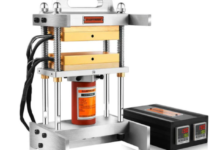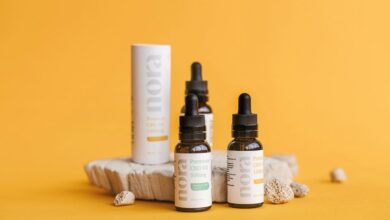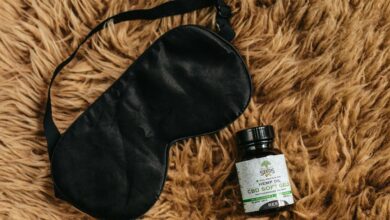How Long Does 10 Mg of Cbd Stay in Your System

The duration that 10 mg of CBD remains detectable in an individual's system can vary widely. Factors such as metabolism, body composition, and usage frequency play significant roles in this variability. While some may find that CBD clears from their system in a few days, others could experience a longer retention period. Understanding these dynamics is essential for those considering CBD use, particularly concerning drug testing and overall management of intake. What influences these differences?
Understanding CBD and Its Effects
Although CBD, or cannabidiol, is often associated with its therapeutic potential, understanding its effects requires a closer examination of its biochemical interactions within the body.
The numerous CBD benefits, such as pain relief and anxiety reduction, contribute to its growing popularity.
However, the legality of CBD varies by region, necessitating awareness of local regulations to ensure responsible use and access to its advantages.
Factors Influencing CBD Detection Time
Understanding how long CBD remains detectable in the body involves considering several key factors that can influence its metabolism and elimination.
Detection methods, such as urine or blood tests, vary in sensitivity and specificity.
Additionally, individual differences in cannabinoid metabolism, influenced by factors like age, body weight, and frequency of use, play crucial roles in determining how long CBD stays in one's system.
How CBD Is Processed in the Body
When CBD is introduced into the body, it undergoes a complex metabolic process primarily in the liver, where enzymes break it down into various metabolites.
This CBD metabolism facilitates interaction with cannabinoid receptors throughout the body, influencing various physiological responses.
The resulting metabolites can vary in their effects, contributing to the overall experience and duration of CBD's presence in the system.
Different Methods of CBD Consumption
As various methods of CBD consumption have emerged, each offers distinct advantages and influences how long CBD remains in the system.
Edible products provide longer-lasting effects, while vaporized oils deliver quicker onset.
Topical applications target localized relief without systemic absorption, and capsule forms offer convenience and precise dosing.
Understanding these methods can empower users to make informed choices regarding their CBD consumption.
The Role of Dosage in Detection Duration
The dosage of CBD significantly influences how long it remains detectable in the body. Higher dosages typically lead to a more pronounced dosage impact, resulting in extended detection duration.
Conversely, lower doses may minimize detection variability, allowing for quicker clearance.
Understanding these dynamics is crucial for individuals seeking to manage their CBD use while remaining mindful of potential drug testing outcomes.
Individual Differences: Metabolism and Body Composition
Individual differences in metabolism and body composition significantly influence how long CBD remains detectable in the system.
Variability in metabolic rate can affect the speed at which CBD is processed and eliminated, while body fat percentage may impact the compound's storage and release.
Understanding these factors is essential for accurately assessing CBD's duration in the body.
Metabolic Rate Variability
Variability in metabolic rates significantly influences how long CBD remains in an individual's system.
Genetic factors play a crucial role, as they determine enzymatic activity affecting CBD metabolism.
Additionally, lifestyle choices, such as diet, exercise, and overall health, can further modulate metabolic efficiency.
Together, these elements create a unique metabolic profile, impacting the duration CBD remains detectable within the body.
Body Fat Percentage Impact
Body fat percentage significantly affects how long CBD remains in an individual's system, as cannabinoids are lipophilic and tend to accumulate in fatty tissues.
Higher body fat can lead to slower absorption rates and prolonged retention of CBD, while lower body fat may facilitate faster metabolism and elimination.
Thus, individual body composition plays a crucial role in determining the duration of CBD's effects.
Testing Methods for CBD Detection
Testing methods for CBD detection vary in accuracy and reliability, with urine testing being the most commonly used approach.
However, blood tests present limitations, as they may not effectively identify CBD levels over time.
Understanding these methods is crucial for interpreting results and assessing the presence of CBD in the system.
Urine Testing Accuracy
Although urine testing is a common method for detecting substance use, its accuracy in identifying CBD specifically can be influenced by various factors.
The detection window for CBD in urine tests may vary based on individual metabolism, frequency of use, and the presence of THC.
Consequently, while urine tests can indicate substance presence, they may not accurately reflect CBD consumption alone.
Blood Test Limitations
How reliable are blood tests for detecting CBD?
Blood test limitations arise from detection challenges related to the compound's low concentration in the bloodstream.
Unlike THC, CBD does not produce psychoactive effects, leading to less consistent testing protocols.
Consequently, blood tests may yield inconclusive results, complicating the interpretation of CBD usage and its presence, thus impacting individuals seeking clarity on their consumption.
How Long Does 10 Mg of CBD Stay in Your System?
Determining the duration that 10 mg of CBD remains in an individual's system can be complex, influenced by various factors such as metabolism, body composition, and frequency of use.
Generally, CBD metabolism varies, with detection windows ranging from a few days to weeks depending on individual characteristics and usage patterns.
Understanding these factors is essential for those seeking to manage their CBD intake effectively.
Potential Side Effects and Considerations
A variety of potential side effects and considerations are associated with CBD use, highlighting the importance of informed decision-making.
Users may report effects such as fatigue, changes in appetite, or gastrointestinal discomfort.
Individual user experiences can vary significantly, necessitating a cautious approach.
Understanding these potential side effects enables individuals to make choices that align with their health goals and personal circumstances.
Tips for Managing CBD Use Effectively
While individual responses to CBD can vary, effective management of its use can enhance the overall experience and benefits.
Implementing dosage strategies tailored to personal needs can optimize effective consumption. Users should start with lower doses, gradually increasing as necessary while monitoring effects.
Keeping a journal of experiences aids in understanding responses, promoting informed decisions for future use and maximizing the potential advantages of CBD.
Conclusion
In the intricate tapestry of human biology, the thread of CBD weaves through individual experiences, influenced by metabolism and lifestyle. Just as a river carves its path through varied landscapes, the duration CBD remains detectable in one's system fluctuates. Recognizing these nuances is akin to understanding the rhythm of nature, allowing for mindful consumption. Ultimately, navigating the waters of CBD requires awareness of personal factors, ensuring that the journey remains both beneficial and balanced.






